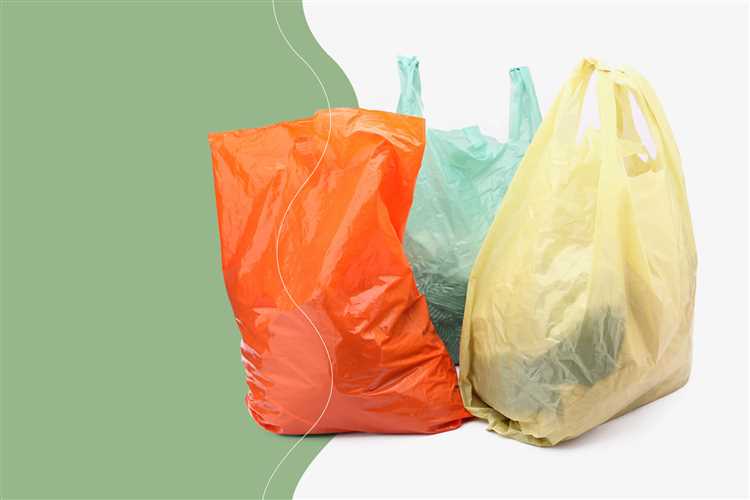
Plastic bags are a common sight in our daily lives, used by consumers to carry groceries, clothing, and other items. However, there has been an ongoing debate about the safety of these bags and their impact on the environment. While plastic bags have undeniable convenience, their potential negative effects have sparked controversy and concern among scientists, environmentalists, and consumers alike.
One of the primary concerns surrounding plastic bags is their contribution to pollution and harm to wildlife. It is estimated that billions of plastic bags end up in landfills each year, where they can take hundreds of years to decompose. These bags can also make their way into waterways and oceans, posing a significant threat to marine life. From turtles mistakenly ingesting plastic bags to fish becoming entangled in them, the impact on ecosystems is evident.
Another aspect of the controversy surrounding plastic bags is their potential health risks for humans. Many plastic bags contain chemicals such as phthalates and bisphenol A (BPA), which have been linked to various health issues. Exposure to these chemicals, especially through food storage or heating, may have adverse effects on hormonal balance and even lead to developmental problems. While regulations have been put in place to limit the use of certain chemicals in plastic bags, concerns persist.
- Plastic Bags: A Closer Look at Their Safety
- Potential Health Risks
- Environmental Concerns
- Safe Use and Disposal
- Protecting the Environment: Plastics’ Impact on Our Ecosystem
- 1. Pollution in Landfills and Oceans
- 2. Harmful Effects on Wildlife
- The Health Effects of Plastic Bags: Separating Fact from Fiction
- Is there a risk of exposure to harmful chemicals?
- Can plastic bags contaminate food?
- The Rise of Eco-friendly Alternatives: Are They Effective?
- Reusable Bags
- Biodegradable Bags
- Paper Bags
- The Recyclability Debate: Are Plastic Bags a Sustainable Choice?
- The Challenges of Recycling Plastic Bags
- Efforts to Improve Plastic Bag Recycling
- The Environmental Impact
- Regulatory Efforts: Governments’ Role in Reducing Plastic Waste
- The Future of Plastic Bags: Innovations and Potential Solutions
- 1. Biodegradable Plastic Bags
- 2. Reusable Bags
- 3. Innovation in Packaging Materials
- Q&A
- Are plastic bags harmful to the environment?
- What are the risks of using plastic bags?
- Can plastic bags be recycled?
- What are the alternatives to plastic bags?
- What are the benefits of using plastic bags?
- Are plastic bags safe to use?
Plastic Bags: A Closer Look at Their Safety
Plastic bags have become an integral part of our daily lives, used for a variety of tasks such as carrying groceries, packing lunches, and storing items. However, there has been an ongoing controversy surrounding their safety and environmental impact. Let’s take a closer look at the safety aspects of plastic bags.
Potential Health Risks
One of the main concerns with plastic bags is the potential health risks they may pose. Some studies have suggested that certain chemicals used in the production of plastic bags, such as phthalates and bisphenol A (BPA), could leach into the food or products they come into contact with. These chemicals have been linked to various health issues, such as hormone disruption and even cancer.
However, it is important to note that most plastic bags, especially those used for packaging food, are regulated and tested for their safety. Governments and regulatory bodies have set limits on the amount of these chemicals that can be present in plastic bags. As long as you use plastic bags as intended, such as for carrying groceries or packaging food, the risk of exposure to harmful chemicals is minimal.
Environmental Concerns
In addition to potential health risks, plastic bags also have a negative impact on the environment. They are not biodegradable and can persist in the environment for hundreds of years, contributing to pollution and harming wildlife. Plastic bags can also clog drainage systems and exacerbate flooding during heavy rains.
Efforts have been made to reduce the use of plastic bags and promote more sustainable alternatives, such as reusable bags made of fabric or other materials. Many countries and cities have implemented plastic bag bans or taxes to discourage their use and encourage the adoption of eco-friendly alternatives.
Safe Use and Disposal
To ensure the safe use of plastic bags, it is important to follow a few guidelines. Avoid using them for storing hot food or liquids, as heat can accelerate the leaching of chemicals. Also, be mindful of proper disposal by recycling plastic bags whenever possible. Many grocery stores and recycling centers have designated collection points for plastic bags.
In conclusion, while there may be potential health risks associated with plastic bags, their safe use can minimize exposure to harmful chemicals. However, the environmental concerns surrounding plastic bags are undeniable, and it is important to consider more sustainable alternatives whenever possible.
Protecting the Environment: Plastics’ Impact on Our Ecosystem
Plastics have become an integral part of our daily lives, but their impact on the environment is a growing concern. The production and disposal of plastic bags, in particular, have significant consequences for our ecosystem.
1. Pollution in Landfills and Oceans
Plastic bags do not biodegrade like organic materials. Instead, they break down into smaller pieces known as microplastics, which persist in the environment for hundreds of years. When disposed of in landfills, these bags contribute to the accumulation of plastic waste, taking up valuable space and contaminating surrounding soil and water sources.
In addition to landfills, plastic bags also end up in our oceans, where they pose a serious threat to marine life. Sea turtles, dolphins, and other aquatic creatures can easily mistake these bags for food, resulting in ingestion and often fatal consequences. Moreover, the presence of plastic bags in the ocean disrupts the natural balance of marine ecosystems and harms the overall health of the ecosystem.
2. Harmful Effects on Wildlife
The presence of plastic bags in the environment can have dire consequences for wildlife. Animals can become entangled in plastic bags, leading to injury, suffocation, or drowning. The ingestion of plastic bags can also obstruct the digestive system of animals, preventing them from obtaining the necessary nutrients for survival. Additionally, toxic chemicals from plastic can leach into the environment, further endangering the health of both terrestrial and aquatic animals.
Furthermore, the impacts of plastics on wildlife extend beyond individual animals. The decline in wildlife populations can have cascading effects on the entire ecosystem. For example, the loss of pollinators due to plastic pollution can disrupt the natural processes of plant reproduction, leading to the decline of vegetation and affecting other species that rely on these plants for food or shelter.
In conclusion, the use of plastic bags has significant negative consequences for our ecosystem. It is crucial that we take steps to reduce plastic waste by opting for eco-friendly alternatives, such as reusable bags, and supporting initiatives that promote recycling and proper disposal of plastics. By protecting our environment, we can safeguard the well-being of our ecosystem and ensure a sustainable future for generations to come.
The Health Effects of Plastic Bags: Separating Fact from Fiction
Plastic bags have long been a subject of controversy when it comes to their potential impact on human health. There are many claims and counterclaims about the dangers or safety of using plastic bags, but it is important to separate fact from fiction.
Is there a risk of exposure to harmful chemicals?
One of the main concerns about plastic bags is the potential for exposure to harmful chemicals. Some studies have suggested that certain chemicals found in plastic bags, such as bisphenol A (BPA) and phthalates, can leach into food or beverages when stored or heated in plastic bags. However, the extent of this leaching and the actual health effects on humans are still a topic of debate among scientists.
It is worth noting that many countries have implemented regulations to restrict or ban the use of certain chemicals in plastic bags, such as BPA and phthalates. This indicates that there might indeed be some level of risk associated with these chemicals, although the exact magnitude of the risk remains uncertain.
Can plastic bags contaminate food?
Another concern is the potential contamination of food by microorganisms present in plastic bags. Plastic bags can harbor bacteria, yeast, and mold if they are not properly cleaned or stored. This can lead to foodborne illnesses if contaminated bags are in contact with food. However, with proper hygiene practices such as washing and sanitizing reusable bags, the risk of contamination can be significantly reduced.
It is important to note that single-use plastic bags, which are commonly used in grocery stores, are often not intended for long-term food storage. Using proper food storage containers and following guidelines for safe food handling can help mitigate any potential risks.
In conclusion, while there is some evidence to suggest potential health risks associated with plastic bags, the exact extent of these risks is still uncertain. It is important to follow proper hygiene practices and regulations to minimize any potential harm. Additionally, considering alternatives such as reusable bags can help reduce the environmental impact of plastic bags while maintaining personal safety.
The Rise of Eco-friendly Alternatives: Are They Effective?

In recent years, there has been a growing concern about the environmental impact of plastic bags. As a result, many eco-friendly alternatives have emerged as potential solutions to this problem. These alternatives, such as reusable bags, biodegradable bags, and paper bags, are designed to be more sustainable and less harmful to the environment.
Reusable Bags
Reusable bags have gained popularity as a more environmentally friendly option to plastic bags. Made from durable materials like canvas or recycled plastic, these bags can be used multiple times, reducing the need for single-use plastic bags. The use of reusable bags can significantly decrease the amount of waste produced and contribute to the conservation of resources.
Biodegradable Bags
Biodegradable bags are another alternative that aims to reduce the environmental impact of plastic bags. These bags are made from materials that can break down naturally over time, usually within a few years. However, it’s important to note that the conditions required for biodegradation may not be present in landfills or oceans, where many of these bags end up. This raises questions about their effectiveness in reducing plastic pollution.
Furthermore, the production of biodegradable bags often requires a significant amount of resources and energy, which can have its own environmental consequences. Therefore, while biodegradable bags may offer a potential solution, further research is needed to assess their true effectiveness and sustainability.
Paper Bags
Paper bags are another alternative to plastic bags that have gained popularity. Made from renewable resources, paper bags are often considered more eco-friendly. However, the production of paper bags involves cutting down trees and consuming energy and water. Additionally, paper bags are not as durable as plastic or reusable bags, and they can easily tear or get damaged, leading to additional waste.
- Overall, the rise of eco-friendly alternatives to plastic bags shows a positive shift towards more sustainable and environmentally conscious choices.
- While these alternatives have their own drawbacks and limitations, they provide a starting point for reducing the use of plastic bags and exploring more sustainable options.
- However, it’s important to remember that the effectiveness of these alternatives depends on various factors, including proper use, disposal, and overall consumer behavior.
- Education and awareness campaigns play a crucial role in encouraging individuals and businesses to adopt eco-friendly practices and make informed choices.
- Ultimately, a combination of individual actions, government regulations, and innovation is needed to address the environmental issues associated with plastic bags and promote the use of effective eco-friendly alternatives.
The Recyclability Debate: Are Plastic Bags a Sustainable Choice?
One of the key issues surrounding the use of plastic bags is their recyclability. Plastic bags are made from a type of plastic called polyethylene, which can be recycled into other plastic products.
The Challenges of Recycling Plastic Bags
However, despite their recyclability, plastic bags pose several challenges when it comes to the recycling process. One of the main challenges is the fact that plastic bags are often contaminated with food waste or other non-recyclable materials, making them difficult to recycle.
Additionally, plastic bags are lightweight, which means they can easily get tangled in recycling machinery, causing disruptions and inefficiencies in the recycling process. These issues have led some recycling centers to refuse to accept plastic bags for recycling.
Efforts to Improve Plastic Bag Recycling
Despite the challenges, there are ongoing efforts to improve the recycling of plastic bags. Some communities have implemented special recycling programs or drop-off locations specifically for plastic bags. These programs aim to educate the public on proper bag recycling and ensure that the bags are processed correctly.
Furthermore, innovative technologies are being developed to address the issues associated with plastic bag recycling. For instance, some companies have designed machines that can efficiently separate plastic bags from other materials in the recycling stream.
The Environmental Impact
When considering the sustainability of plastic bags, it is essential to look at their overall environmental impact. While plastic bags can be recycled, the vast majority of them end up in landfills or as litter in the environment. This not only contributes to pollution but also poses a threat to wildlife, particularly marine animals.
Furthermore, the production of plastic bags requires significant amounts of fossil fuels and energy, contributing to greenhouse gas emissions and climate change. Additionally, the manufacturing process often involves the use of toxic chemicals, which can harm both humans and ecosystems.
Considering these factors, it becomes clear that the sustainability of plastic bags is questionable at best. While recycling efforts are important, reducing the use of plastic bags and exploring alternative, more sustainable options should be a priority.
- Plastic bags pose recycling challenges due to contamination and tangling in machinery.
- Special recycling programs and innovative technologies are being developed to improve plastic bag recycling.
- Plastic bags have a significant environmental impact, contributing to pollution, endangering wildlife, and contributing to climate change.
- Reducing plastic bag usage and exploring sustainable alternatives should be a priority.
Regulatory Efforts: Governments’ Role in Reducing Plastic Waste
Plastic waste has become a growing concern worldwide, with millions of plastic bags being used and discarded every day. Governments around the world have recognized the need to take action and implement regulations to reduce plastic waste and its harmful effects on the environment.
One of the main regulatory efforts is the banning or taxing of single-use plastic bags. Several countries and cities have implemented such measures, either prohibiting the use of plastic bags altogether or imposing fees for their usage. These regulations aim to encourage consumers to switch to more sustainable alternatives, such as reusable bags or biodegradable options.
Government regulations also play a crucial role in promoting recycling and waste management programs. Many governments have implemented recycling initiatives that require businesses and individuals to separate plastic waste and ensure its proper disposal. These efforts help divert plastic waste from landfills and encourage its recycling, reducing the overall environmental impact.
In addition to banning or taxing plastic bags and promoting recycling, governments are also investing in research and development of alternative materials. They provide funding and incentives for companies to develop and manufacture sustainable packaging options, such as compostable or biodegradable materials. These regulatory efforts aim to foster innovation and encourage the use of eco-friendly materials in the packaging industry.
Furthermore, governments are actively participating in international agreements and conventions aimed at addressing plastic waste. For example, the United Nations Environment Programme has launched the Clean Seas campaign, which seeks to eliminate major sources of marine litter, including single-use plastics. Governments are holding discussions and committing to targets to reduce plastic waste and promote sustainable practices on a global scale.
Overall, regulatory efforts are crucial in reducing plastic waste and mitigating its environmental impact. Governments play a vital role in implementing and enforcing regulations that encourage individuals and businesses to adopt more sustainable practices. By promoting the use of alternative materials, supporting recycling programs, and participating in international initiatives, governments are actively working towards a cleaner and greener future.
The Future of Plastic Bags: Innovations and Potential Solutions

Plastic bags have long been a topic of controversy due to their negative environmental impact. However, there are several innovations and potential solutions that could help shape the future of plastic bags.
1. Biodegradable Plastic Bags
One promising solution is the development and use of biodegradable plastic bags. These bags are designed to break down over time through natural processes, such as exposure to sunlight and microorganisms. Biodegradable bags offer a more eco-friendly alternative to traditional plastic bags, as they do not contribute to the long-lasting pollution problem.
However, it’s important to note that not all biodegradable bags are created equal. Some may only break down in specific conditions, such as in industrial composting facilities, while others may take a significant amount of time to decompose. Further research and development are needed to improve the effectiveness and accessibility of biodegradable plastic bags.
2. Reusable Bags
Another potential solution is the widespread adoption of reusable bags. These bags, often made from fabric or other durable materials, can be used multiple times instead of being disposed of after a single use. By encouraging consumers to bring their own bags when shopping, the demand for disposable plastic bags can be significantly reduced.
Reusable bags come in various shapes, sizes, and designs, making them a practical and fashionable alternative to traditional plastic bags. Additionally, some retailers offer incentives, such as discounts or loyalty points, to encourage customers to use reusable bags. These initiatives help promote sustainable shopping habits and reduce plastic waste.
3. Innovation in Packaging Materials
Many companies and researchers are actively exploring alternative packaging materials that can replace plastic bags. These innovations include materials made from plant-based sources, such as cornstarch or hemp, which are biodegradable and renewable. Other options being explored include paper-based and compostable materials.
While these alternative materials show promise, there are challenges to overcome, such as ensuring their durability, affordability, and scalability for large-scale production. Nonetheless, ongoing research and investment in new packaging materials offer hope for a future where plastic bags are no longer the default choice.
Conclusion
The future of plastic bags lies in innovative solutions that prioritize environmental sustainability. Biodegradable plastic bags, reusable bags, and advancements in packaging materials present viable alternatives to traditional plastic bags. With continued research and development, it is possible to minimize the environmental impact of plastic bags and establish a more sustainable and responsible approach to packaging and carrying goods. It is up to individuals, businesses, and policymakers to support and promote these solutions for a cleaner and greener future.
Q&A
Are plastic bags harmful to the environment?
Plastic bags are indeed harmful to the environment. They are made from petroleum, a non-renewable resource, and they take hundreds of years to decompose. Additionally, many plastic bags end up in the ocean, causing harm to marine life.
What are the risks of using plastic bags?
Using plastic bags poses several risks. They can contribute to pollution, as they often end up as litter and can take a long time to break down. Additionally, plastic bags can be a choking hazard for wildlife. Lastly, the production and disposal of plastic bags release harmful greenhouse gases into the atmosphere.
Can plastic bags be recycled?
Plastic bags can be recycled, but the recycling process can be challenging. Many recycling facilities do not accept plastic bags because they can cause issues with sorting machines. However, some grocery stores offer drop-off locations for recycling plastic bags.
What are the alternatives to plastic bags?
There are several alternatives to plastic bags. Reusable bags made from materials like cotton or canvas are a popular option. Paper bags are also a more eco-friendly choice, although they still have some environmental impact. Some stores encourage customers to bring their own bags or offer biodegradable bags as an alternative.
What are the benefits of using plastic bags?
Some argue that plastic bags have benefits, such as their convenience and affordability. Plastic bags are lightweight and easy to carry, making them popular for shopping. They are also relatively inexpensive to produce, which can be advantageous for businesses and consumers. However, these benefits need to be weighed against the environmental impact of plastic bags.
Are plastic bags safe to use?
Plastic bags are generally considered safe to use, but there has been some controversy surrounding their potential health and environmental risks.
